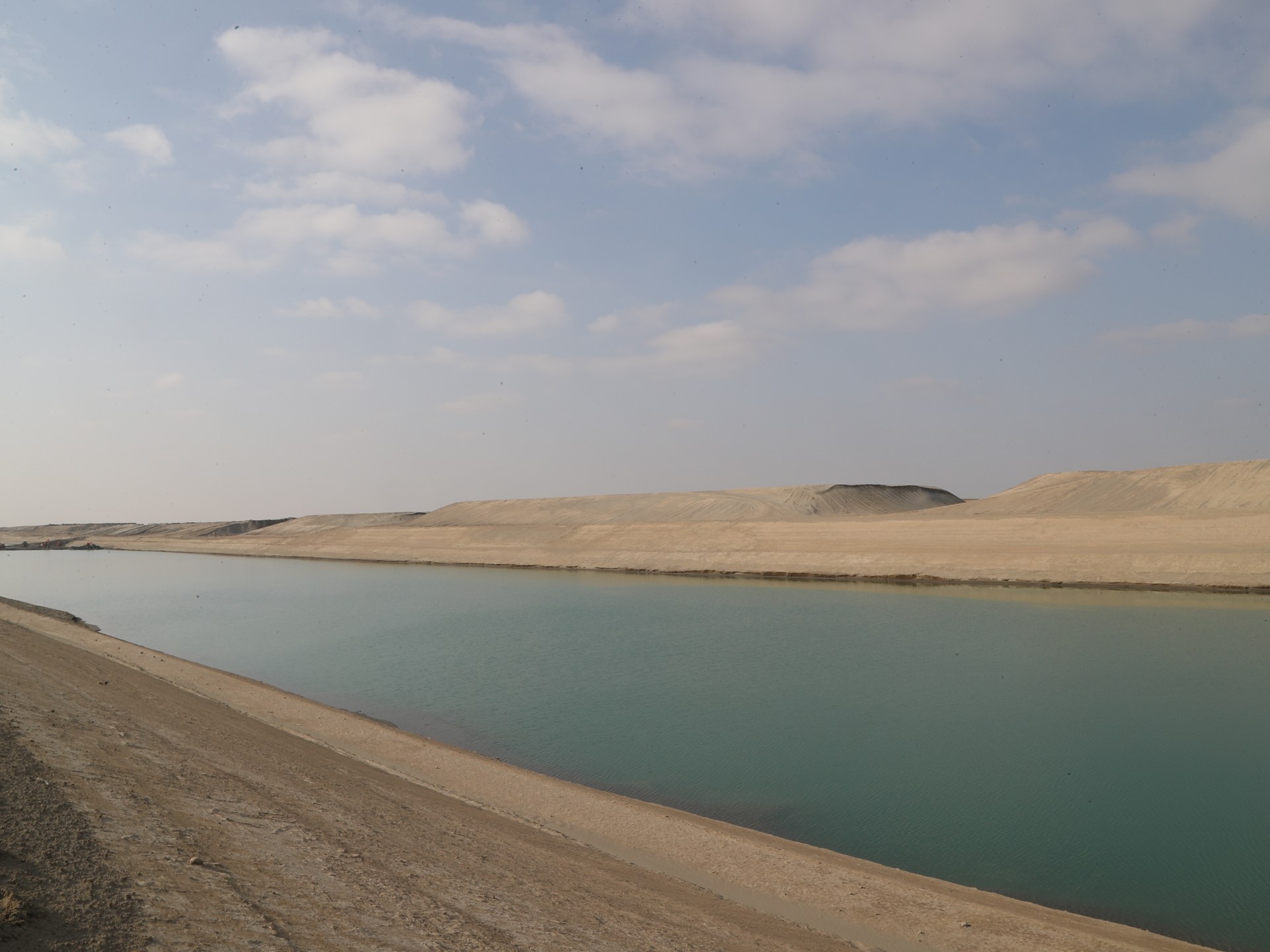The conflict over water resources in Central Asia intensified after the construction of the giant Khushtepe Canal project on the Amudarya River in northern Afghanistan, known in Arabic as the Gihon River.
According to a report published by the Russian newspaper "Izvestia", the Amudarya River – Gihon – which flows into Uzbekistan and Turkmenistan is threatened with drought, and given the absence of international legal mechanisms to resolve the situation, experts warn of a possible escalation of the situation in the region.
The Khushtepe project is supposed to irrigate the agricultural lands of the Afghan provinces of Balkh, Jawzjan and Faryab, which will provide jobs for a quarter of a million people, and with the aim of speedy completion of works, about 6.5 thousand workers have been seconded, working in 3 shifts.
The newspaper reported that by the end of last year, the length of the completed section was about 40 kilometers, the channel became visible from space, and the project is expected to be fully completed within 5 years.
Following his visit to the project site this month, Afghan official Mullah Abdul Ghani Baradar reiterated Kabul's determination to complete the construction of the facility by various means.
Water crisis
Experts believe that the construction of the canal will exacerbate the crisis of water shortage in the region, given that Turkmenistan and Uzbekistan, which lie downstream of the Amudarya-Gihon River, suffer from water scarcity.
He added that during the dry years, the total volume of water in the river is 40 cubic meters, that is, a quarter of the volume of the river will become dry, which threatens a new environmental disaster followed by a social disaster, and the situation will be bad for the tributaries of the river in the state of Khiva and Bukhara.
Russian expert Andrei Petichnikov said that the waters of the Amudarya River do not currently reach Lake Khiva and after the canal enters service, the situation will worsen further. Uzbek media describe the channel as a major threat to national security.
According to World Bank forecasts, freshwater shortages in Central Asia could lead to an 11 percent drop in the region's GDP within 30 years.
According to UN estimates, countries in the region incur annual losses of $1.75 billion due to poor coordination of the use of water resources.
The report ruled out coordination among countries to resolve the problem peacefully, and stated that water resources could become a cause of aggravation of relations in the Central Asian region.
But history professor Alexander Kniyazev ruled out the possibility of escalating tensions, citing Afghanistan's right to use water resources in the Amudarya River (Gihon) and Uzbekistan's willingness to help Kabul build the canal.

